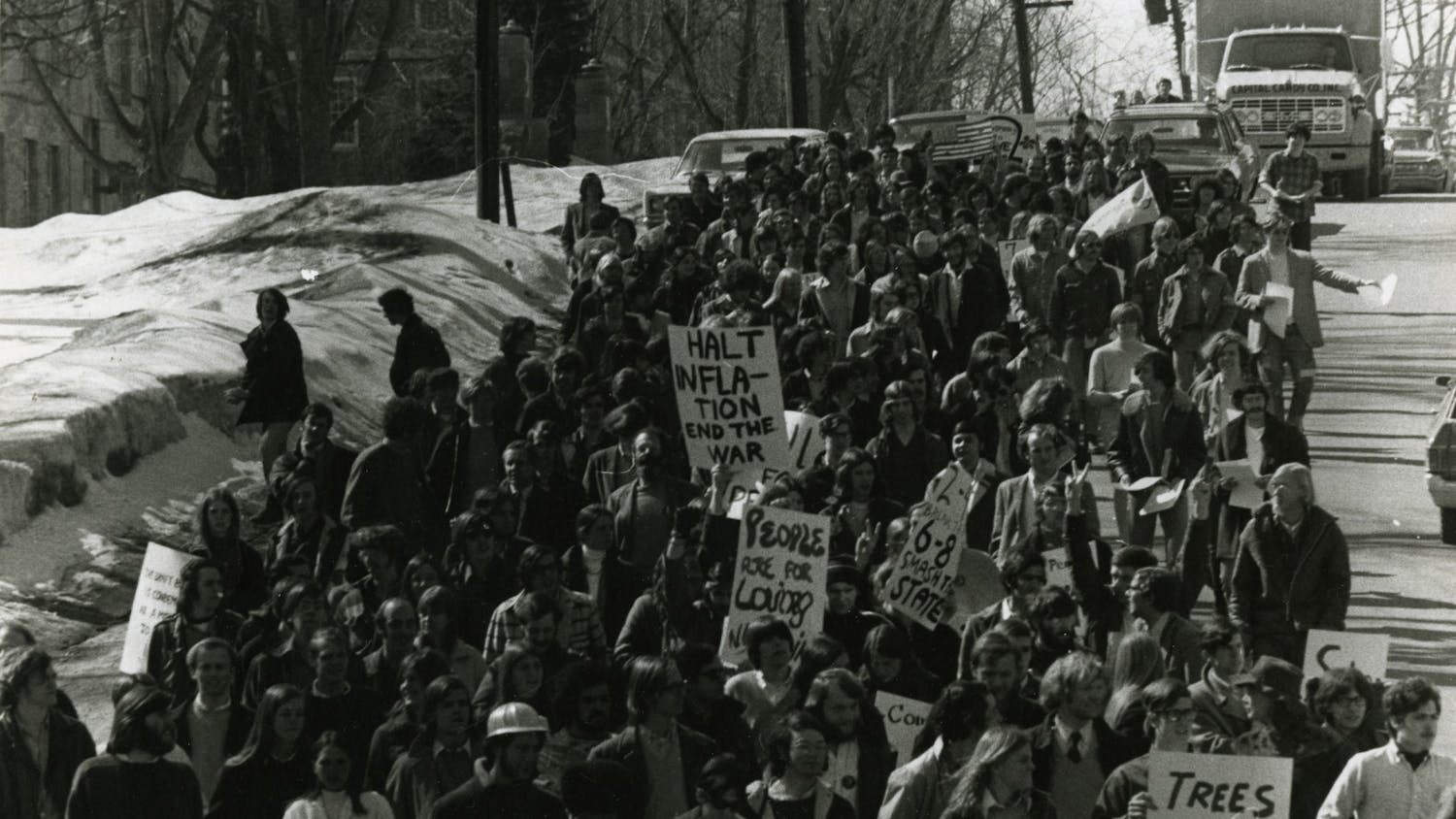After a year and a half of quarantining, distancing and Zooming, Middlebury is beginning to again resemble what it once was, and the desire to return to a pre-pandemic campus life — pre-dispersion of friends and classmates taking semesters off or learning remotely, pre-seeing close contacts only, pre-off-campus travel restrictions — is palpable. There seems to be a shared sentiment that we all need to make up for the time and freedom we lost to Covid-19.
Super senior Febs, seniors and senior Febs are simultaneously daunted by their impending graduation date, another reminder to fill every single possible moment before running out of time. Juniors and junior febs who only had three-quarters of a year or less want to recapture the brief, “normal” college experiences they had before packing up to go home. And sophomores, who have only ever known Middlebury during the pandemic, have the same excitement, sense of wonder and pressure to have a great start to their college experience that first years have.
After so much time spent alone, it can feel like a disservice to oneself to not take advantage of every opportunity for social interaction. Plus, a desire to live life to the fullest in the wake of a huge, life-altering event (especially one that caused massive casualties) is a natural human response. Not to mention that concerns that Covid-19 could once again spike and send us back into isolation leave students wanting to make sure they aren’t regretting turning down a social event when they had the chance.
These internal and external pressures to take advantage of the “return to normal” only add to preexisting societal forces that claim college needs to be the best four years of your life and to a pervasive Middlebury busyness culture.
Accordingly, for the past three-and-a-half weeks, many students have been going non-stop. This incessant “going” can manifest as sitting in the dining hall for five hours “doing work” (but really chatting), or as partying as often and as hard as possible. It can manifest as making travel plans for Fall Break despite being exhausted, or as falling victim to FOMO so hard that you attend a Flo Milli concert you know you will not enjoy — but no matter what, existing this way can only last so long before our social batteries, emotional stabilities and physical well-beings utterly deteriorate.
This editorial is meant to be a reminder that college is a lot, and that sometimes, even in this pandemic-recovery era, it is okay to just get by. Everyone needs a break at some point, and we can tell many people desperately need one right now by the amount of coughing happening in Davis.
To assuage our collective anxiety, we think it would first be helpful to confront what we have lost. As a board, we are of the opinion that it is not exactly “time” that perished; certainly, social events, academic and professional opportunities, athletic competitions and study abroad programs disappeared, but we still experienced more than a year of life. We struggled, and we also learned, grew and often made connections and memories that we may not have otherwise. Most importantly, we experienced a collective grief that cannot be swept under the rug in a quick return to pre-pandemic life.
We ask the college faculty and administration to support students in accepting the past so we can move forward more calmly. Many professors have already completely eliminated the forgiving late policies they enacted at the start of the pandemic and have overall lessened their flexibility, but we are still in a pandemic. We are still readjusting. And we are certainly still learning how to cope with our grief.
The administration should encourage continued understanding in addition to creating spaces and times for students to face and accept the stress, sadness and anxiety the pandemic produced in us.
It can be extremely difficult to remember to self-reflect and reevaluate what is really meaningful to you — but amid all the horrors of the pandemic, perhaps increased intentionality can be a silver lining.
We hope students will stop thinking of the pandemic in terms of “time lost” — which can lead to a temptation to run ourselves into the ground — and try instead to conceptualize the pandemic as “joy lost,” which might aid us in spending our time more intentionally as we work to reevaluate what brings us that joy.
So, instead of focusing on what mainstream Middlebury culture or other influences tell you the college experience “should” be, transitioning back to pre-pandemic freedom can be an opportunity to redefine what your individual, ideal college experience looks like. For some, the dream may well be sticky Atwater parties and off-campus darties; for others, making the most of Middlebury might come in the form of chill movie nights with just a couple friends or exploring the vastness of Vermont through hikes, apple picking, swimming and brewery visits.
To each their own, and that is what makes college great.
As we continue through this year, we can acknowledge the pain that comes from losing parts of the regular college experience (an experience that is, though not the last joyful part of life as lore holds, still a special and short time in our lives) in a way that does not encourage overloading ourselves. Remember to take a breath, be kind to yourself and try to rediscover balance.
To Each Their Own Balance

Comments


